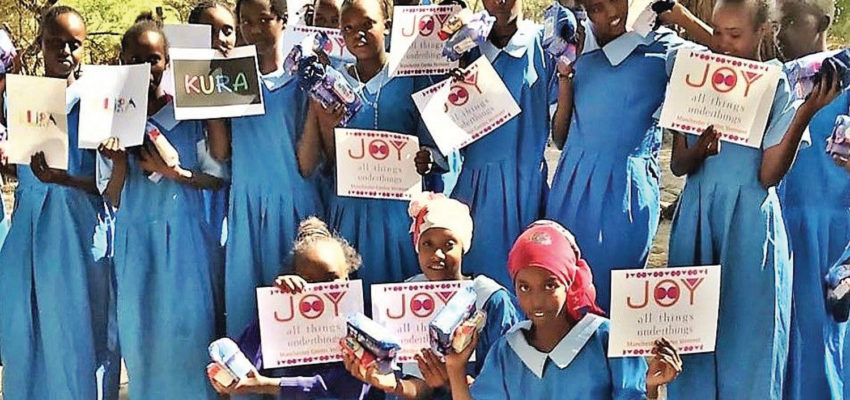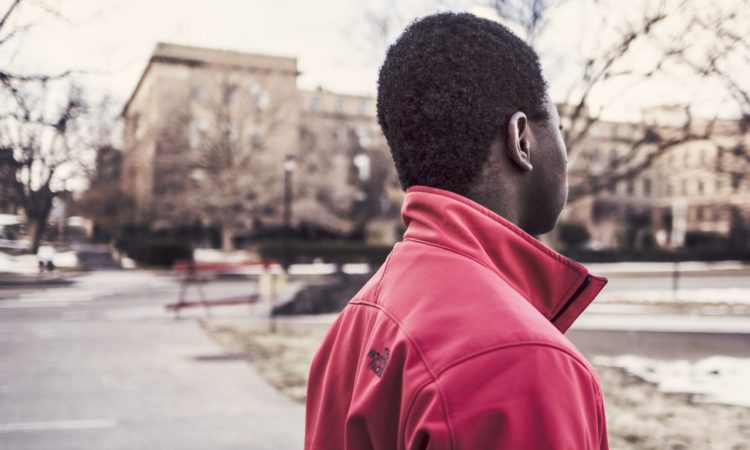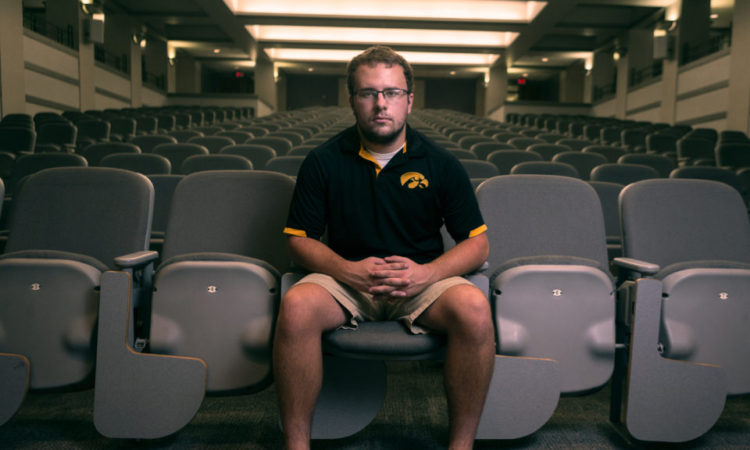By Cherise Madigan, Journal correspondent
MANCHESTER — Fifty women gathered in solidarity Feb. 8, huddled with hearts open in a Dorset home.
Their purpose? To support Manchester resident Sarah Hadden in her endeavor to educate girls in northern Kenya through her nonprofit organization, The Kura Project.
The success of the “Heart to Heart Party,” was a “testament to the strength and power of women,” said Hadden, who shares the belief that educating girls is the key to effecting change.
That belief was solidified for the activist in 2010, when she traveled to Kenya for the first time, alongside a group of women.
While there, Hadden, a former schoolteacher, realized just how many barriers are faced by female students in the region.
Last month, Hadden returned to Kenya again — this time traveling not just to Kura, but to the neighboring village of Ngurunit, where the organization coordinated a two-day mentorship program.
“The trip was amazing,” Hadden said. “It gets better and better each time, and I think it’s because of the connections we’ve made with the people there.”
While the broad aim of The Kura Project is to keep girls in school, Hadden pursues this goal in three ways: Mentorship programs, like the most recent in Ngurunit; “opportunity kits” featuring reusable menstrual pads, underwear, and soap; and a sponsorship program that now funds the education of 32 students.
While the first mentorship program was held in the project’s home-base of Kura, Hadden chose to bring her three professional mentors to a nearby village this time. There, the program’s 32 sponsored students from Kura joined 30 of their peers from Ngurunit for workshops on issues including female genital mutilation, HIV/AIDS, teen pregnancy, and life skills such as self-esteem.
According to Hadden, the workshops were “packed” throughout their two-day tenure.
Still, hints of home were to be found throughout the trip. While in Kenya the organization delivered hundreds of “opportunity kits” in the region, featuring donated underwear from Manchester’s “JOY All Things Underthings.” Additionally, more than 600 of those kits were funded in honor of Stratton’s Lynne Andreen, who opted for donations to the organization in lieu of birthday gifts.
Hadden was perhaps most touched, however, by witnessing the impact that her educational sponsorship program has had. While in Ngurunit, one of the project’s sponsored students shared her story with peers who may feel that obtaining an education is impossible, according to Hadden.
“Rose basically told them that she is one of them, and that where she has come from will actually benefit her in the end,” Hadden explained. “She said that The Kura Project was something that she will always owe a lot to, because it provided her with an education.”
Being the only educated person in her family, said Hadden, Rose admitted to the group that the opportunity presents some pressure to achieve as well. That pressure, however, is often coupled with gratitude. During her visit, Hadden was able to witness that gratitude first-hand.
“Her father heard that I was in Kura, and he just walked right into the hut that I was staying in,” she said. “He explained that he didn’t come to ask for any money, but that he had been lying ill in bed for several months. He grabbed my face and said, ‘I just wanted to see your face, so that when I sleep at night it is in my prayers.'”
Moving forward, Hadden says that she is more motivated than ever to grow the project and provide a growing body of students with educational opportunity. While she admits that sponsorship is “not cheap” — totaling $3,000 over a four year period — the organization has begun to promote something called a “circle of nine.”
“It’s $900 for the first year, but that’s a lot more manageable when it’s split between nine people,” Hadden said. “The women at Eileen Fisher in Manchester were some of the first to put together a circle to sponsor a child.”
As the project grows, Hadden hopes to hire an employee to work in Kenya full time to increase contact and ensure that the program runs “as smoothly as possible.” A key to that growth is the wealth of support that The Kura Project has found in the Northshire according to the activist.
Knowing that her village is behind her, Hadden says, empowers the work she loves so dearly.
“I work so hard to make sure that we can continue to grow, and make a bigger impact,” Hadden said. “This thing has evolved from school supplies — pencils and pens and books — and it’s just so amazing to see how everything has come together. It’s a beautiful project, and I love doing it.”



